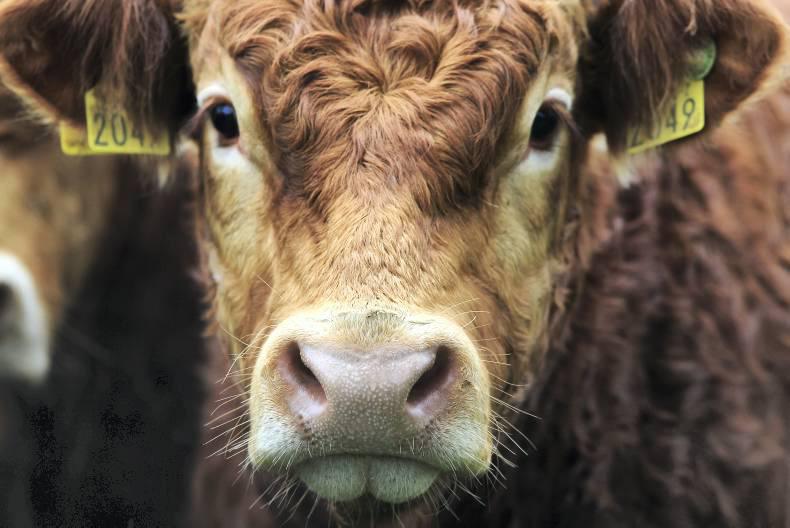The Irish Farmers Journal has obtained what are likely to be the final terms and conditions for the long awaited suckler scheme. It will be called the Beef Data and Genomics Programme (BDGP) and will run from 2015 until 2020. Applications for the scheme will close on the 29 May 2015.
Farmers entering into the voluntary scheme will be committing to meet the requirements for the full six year period. Those failing to comply with the regulations over the life time of the scheme may be forced to refund money paid out over previous years.
There will be seven key requirements for the scheme all centred on improving herd output. The breakdown is as follows:
1) Recording calving details: Farmers must carry out a calving ease survey on every cow calving on the farm and record it through animal events along with the tag number or AI code of the sire.
This requirement will account for 10% of the total payment.
2) Annual Farm Survey: From 2015, applicants will be required to complete a herd survey in respect of all cows, calves and stock bulls on his/her holding. Each year farmers will have to detail calf quality, docility, size and vigour along with details on scours and pneumonia. The milking ability of cows, docility and culling reasons will also have to be recorded annually along with the docility and functionality of stock bulls. From 2016, the survey will be extended to include more general farm practices around grassland management and herd health. The terms and conditions state that in order to ensure the validity of some of the data recorded calves must be maintained on the holding for at least five months.
This requirement will account for 25% of the total payment.
3) Genotyping: Applicants will be required to take a tissue tag sample from animals selected for genotyping by ICBF. Tissue samples must be taken and submitted for all of these animals. The number of animals genotyped each year will be at least equivalent to 60% of the number of calved suckler cows on the holding in 2014. This will prevent farmers from dramatically reducing cow numbers over the lifetime of the scheme. For example if an applicant calved down 15 eligible cows in 2014 he/she must maintain at least 9 eligible cows each year of the scheme.
This requirement will account for 20% of the total payment.
4) High genetic merit animals: For applicants using a stock bull, at least one bull on the farm must have been genotyped four or five star on either the terminal or replacement index (on within or across breed basis) at time of purchase. Farmers will have until the end of June 2019 to comply with this regulation. For the end of June 2016, 80% of AI used on participating holdings must be from four or five star bulls on either the terminal or replacement index.
This requirement will account for 10% of the total payment.
5) Female replacements: Scheme applicants are required to ensure that a percentage of their heifers/eligible suckler cows are genotyped females that are: four or five stars on the replacement index (either across or within breed) at the time of purchase or at the time of genotyping. Where a non-genotyped heifer is purchased this animal must be genotyped and subsequently confirmed four or five star on the replacement index. The conditions also state that the heifers are at least 16 months old and born in 2013 or later. By the end of October 2018, farmers must ensure that at least 20% of heifers/eligible cows comply with these regulations. The figure must increase to 50% by the end of October 2020.
This requirement will account for 20% of the total payment.
6) Complete a carbon navigator: All applicants in the scheme must complete a carbon navigator by the end of October 2016 and in each subsequent year of the scheme. In year one, the carbon navigator must be completed with the support of an approved advisor, the cost of which will be covered by the Department. Following the completion in year one applicants must submit data annually around areas such as grazing length, fertilizer use and slurry spreading.
This requirement will account for 10% of the total payment.
7) Farmer training: applicants will be required to attend specific training courses related to the scheme. Training must be completed by the end of October 2016. All applicants will be paid €166 to cover the costs associated with participation in the programme. This will be paid by the training provider directly to the scheme applicant upon completion of the course.






 This is a subscriber-only article
This is a subscriber-only article










SHARING OPTIONS: